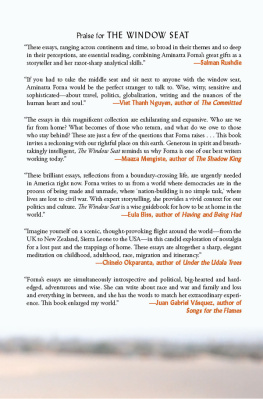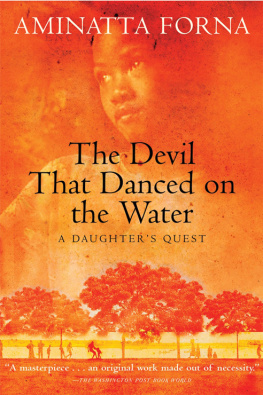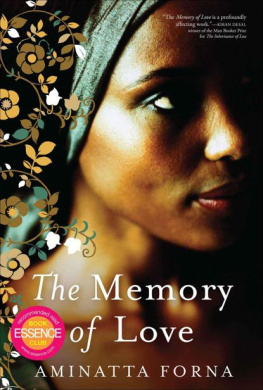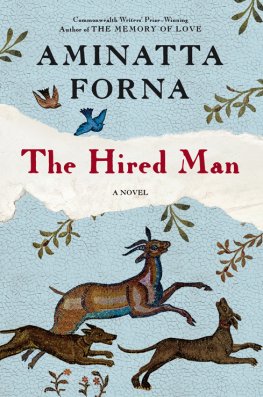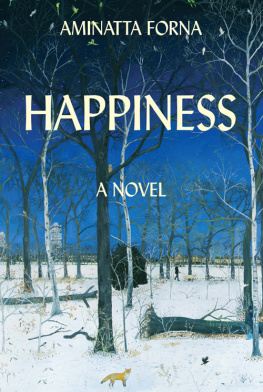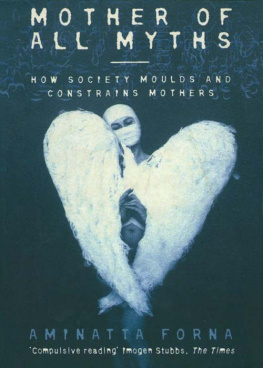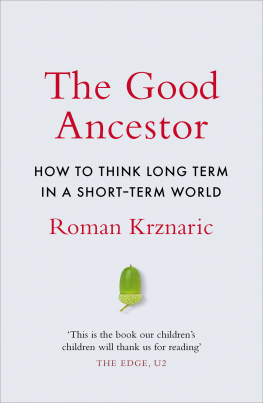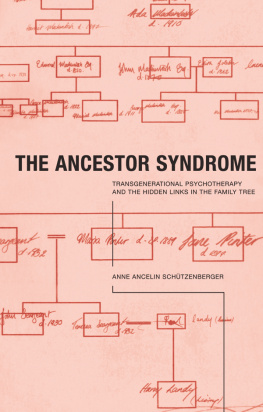Aminatta Forna - Ancestor Stones
Here you can read online Aminatta Forna - Ancestor Stones full text of the book (entire story) in english for free. Download pdf and epub, get meaning, cover and reviews about this ebook. year: 2011, publisher: Bloomsbury, genre: Detective and thriller. Description of the work, (preface) as well as reviews are available. Best literature library LitArk.com created for fans of good reading and offers a wide selection of genres:
Romance novel
Science fiction
Adventure
Detective
Science
History
Home and family
Prose
Art
Politics
Computer
Non-fiction
Religion
Business
Children
Humor
Choose a favorite category and find really read worthwhile books. Enjoy immersion in the world of imagination, feel the emotions of the characters or learn something new for yourself, make an fascinating discovery.

- Book:Ancestor Stones
- Author:
- Publisher:Bloomsbury
- Genre:
- Year:2011
- Rating:4 / 5
- Favourites:Add to favourites
- Your mark:
- 80
- 1
- 2
- 3
- 4
- 5
Ancestor Stones: summary, description and annotation
We offer to read an annotation, description, summary or preface (depends on what the author of the book "Ancestor Stones" wrote himself). If you haven't found the necessary information about the book — write in the comments, we will try to find it.
Ancestor Stones — read online for free the complete book (whole text) full work
Below is the text of the book, divided by pages. System saving the place of the last page read, allows you to conveniently read the book "Ancestor Stones" online for free, without having to search again every time where you left off. Put a bookmark, and you can go to the page where you finished reading at any time.
Font size:
Interval:
Bookmark:
Aminatta Forna

For Yabome, oya ka mi
1. Abie, 2003
The Womens Gardens
2. Asana, 1926
Shadows of the Moon
3. Mariama, 1931
Stones
4. Hawa, 1939
Fish
5. Serah, 1950
Woman Palava
6. Asana, 1941
Bitter Kola
7. Mariama, 1942
Kassila the Sea God
8. Hawa, 1955
Josephine Baker i47
9. Serah, 1956
Red Shoes
10. Hawa, 1965
The Music of Flutes
11. Mariama, 1970
Other Side of the Road
12. Serah, 1978
The Dream
13. Asana, 1985
Mambore
14. Hawa, 1991
Sugar
15. Serah, 1996
The Storm
16. Asana, 1998
The Box
17. Mariama, 1999
Twelfth Night
18. Abie, 2003
The Womens Gardens II
Forna is a writer of startling talent Ancestor Stones is written in a sumptuous prose which makes it a delight to read. Virtually every page contains breathtaking descriptions The writing is luminous leaves an impression of immense joyfulness, a sense of delight and wonder. Conveying the human spirits irrepressible love of life is the triumph of this magical book Daily Telegraph
A wonderfully ambitious novel written from the inside, opening up a particular society and delving deeply into the hearts, histories and minds of women Guardian
A dazzling storyteller, Forna vividly evokes the daily lives of African women and their brave attempt to alter their destiny Waterstones Books Quarterly
She tells stories as she breathes after putting down the book one feels one has inhabited their world and times Forna is capable of a prose of soaring beauty The Times
A beautiful novel by a great writer who always gives you a sense that you are eavesdropping on whispered conversations Daily Ireland
Mesmeric, elegant prose equally extraordinary and vibrant with sadness and joy Forna beautifully describes the chafing confines and glorious freedoms of lives whose rich continuity is being gradually rent asunder Daily Mail
A masterclass in modern writing Fornas is a beautifully constructed novel that merges voices from the past and present Works
Forna carries us through her novel with an enviable knack for storytelling Metro
An optimistic, truthful novel TLS
Heavy with myths and magic, it builds into a fascinating evocation of the experience of African women, and all that has been gained and lost with the passing of old traditions Marie Claire
Further praise for Ancestor Stones
Fornas first novel spans continents and decades, piecing together a remarkable family history the individual stories resonate with poignancy and strength Psychologies
Its the personal that makes this book so gripping Big Issue
As a novelist, Forna deftly controls what becomes an epic canvas Literary Review
An extraordinary book, wide-ranging and wildly inventive London Review of Books
This is a work of literature that reached as deeply into the being of a white male Anglo-Saxon card-carrying bloke as, I dare say, it would touch the heart of any woman a beautiful book she has re-kindled the dying embers of a much more precious art that of listening Evening Standard
Vivid, graceful prose Fornas tender, haunting novel is a celebration of the enduring power of such private narratives Sunday Telegraph
Fornas skill in this exuberantly imagined novel lies in pressing such words and images between pages without dulling their spirit Observer
Her book gains strength and conviction as it goes on and the unhappy history of Sierra Leone unrolls before us Sunday Times
A writer of delicacy and feeling, able to evoke a place and time with skill Scotsman
Captivating A compelling plot, portraying hopes, ideas and dreams in a world that is slowly beginning to crumble a thoughtful, provocative and magical work Skinnymag
This is a beautifully written novel that makes the heat and colour and pain of these womens lives come alive Irish Tatler
A magical tale of women, Africa, innocence and family Forna is a true storyteller This book is a rare treat and a triumph in narrative style Good Book Guide

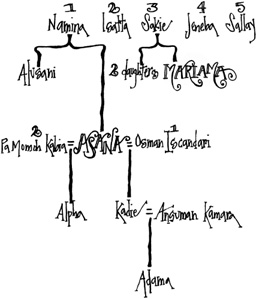
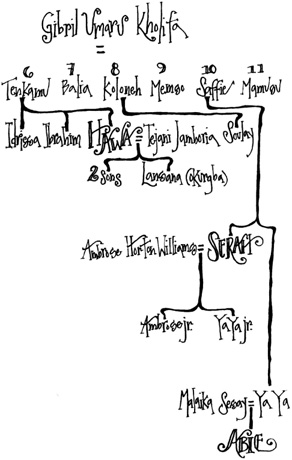
I see her sometimes, usually when I least expect it: a reminder of her. In the bow of a lip: an outline a blind man could trace with his fingertips. The curve of the continent in the sweep of a skull, in the soft moulding of a profile. A man on a bus. Sitting alone. Tall above the slumped bodies of the other passengers: a surviving lily in a bowl of wilting flowers. For several seconds I gazed up at him. He never looked my way. The bus moved off over the bridge and I watched it go. And for a moment I felt it, the tightening in my guts, the drifting melancholy the return of a forgotten nostalgia.
On Sunday mornings I have seen her in the shape of a thousand butterflies winging their way down the Old Kent Road, where only hours before razor-cut youths stumbled out of doorways and barelegged, barefoot girls walked home holding on to their handbags and high heels. The butterflies dark heads were crowned with turbans, their bright robes like great iridescent wings billowed in the gusts of air from the passing traffic. In twos and threes they came together to form a colourful cloud, a great host of butterflies winging their way through the grey walls of the city to spiritual pastures: to the People of Destiny Mission, to the Temple of Christ, to Our Ladys Church of Everlasting Hope.
What do they pray for, I wonder? Held captive by fate and history in this dark country.
For some miracle, a pair of ruby slippers? A click of the heels, a spinning tornado to whisk them up and set them down again in a place far, far away beneath a burning amber sun.
Abie, 2003
The Womens Gardens
London, July 2003.
It began with a letter, as stories sometimes do. A letter that arrived one day three winters ago, bearing a stamp with a black and white kingfisher, the damp chill of the outside air, and the postmark of a place from which no letter had arrived for a decade or more. A country that seemed to have disappeared, returned to an earlier time, like the great unfilled spaces on old maps where once map makers drew illustrations of mythical beasts and untold riches. But of course the truth is this story began centuries ago, when horsemen descended to the plains from a lost kingdom called Futa Djallon, long before Europes map makers turned their minds to the niggling problem of how to fill those blank spaces.
A story comes to mind. A story I have known for years, it seems, though I have no memory now of who it was who told it to me.
Five hundred years ago, a caravel flying the colours of the King of Portugal rounded the curve of the continent. She had become becalmed somewhere around the Cape Verde Islands, and run low on stocks, food and water. When finally the winds took pity on her, they blew her south-east towards the coast, where the captain sighted a series of natural harbours and weighed anchor. The sailors, stooped with hunger, curly haired from scurvy, rowed ashore, dragged themselves through shallow water and on up the sand where they entered the shade of the trees. And there they stood and gazed about themselves in disbelief. Imagine! Dangling in front of their faces: succulent mangoes, bursts of starfruit, avocados the size of a mans head. While from the ends of their elegant stalks pineapples nodded encouragingly, sweet potatoes and yams peeped from the earth, and great hands of bananas reached down to them. The sailors thought they had found no less a place than the Garden of Eden.
Font size:
Interval:
Bookmark:
Similar books «Ancestor Stones»
Look at similar books to Ancestor Stones. We have selected literature similar in name and meaning in the hope of providing readers with more options to find new, interesting, not yet read works.
Discussion, reviews of the book Ancestor Stones and just readers' own opinions. Leave your comments, write what you think about the work, its meaning or the main characters. Specify what exactly you liked and what you didn't like, and why you think so.

